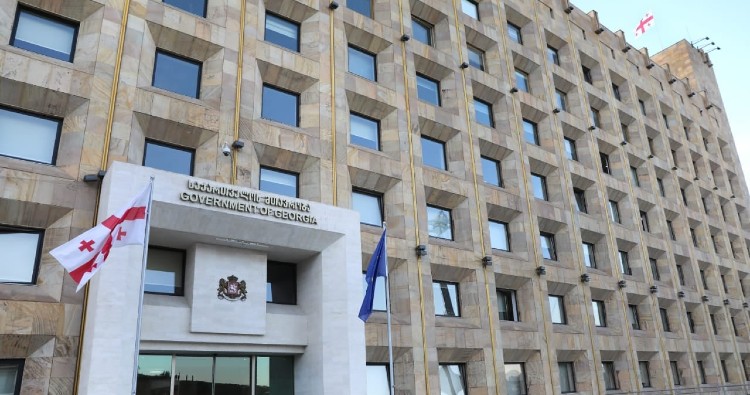Gov’t “concerned” over visit of wanted former official to EU, Germany

The statement stressed Georgia was a “loyal partner with a clear expectation” that European structures and bureaucracy would continue “expressing greater consideration and commitment towards the values” that the European Union was founded with after World War II. Photo: Government Administration
The Georgian Government on Monday raised “concerns” about visits and meetings hosted by the European Union and in Germany and involved Zurab Adeishvili, the wanted former Prosecutor General and Justice Minister of Georgia under the previous United National Movement Government, as a member of a Ukrainian delegation.
In a statement, the Government said Adeishvili had been “one of the masterminds” behind the “repressive” UNM “regime” that was “continuously trampling the democratic and legal statehood principles”, along with “basic human rights and freedoms”, as well as independence of Georgian judiciary.
“Adeishvili has been convicted for the illegal foreclosure of a wine factory, seizure of TV Company Iberia, kidnapping and inflicting brutal violence against [politician] Koba Davitashvili, torture of prisoners, bankruptcy of the Cartu Bank, and he is accused of covering up the raids and seizure of TV Company Imedi, violence demonstrated [during breakup of an opposition rally in Tbilisi] on November 7, 2007 and murder of Buta Robakidze”, the statement said.
The Government alleged the admission of Adeishvili at premises of the EU and German state structures “undermines the perception” that European bureaucracy “remains loyal to the ideals of a legal statehood”.
“The said occurrence directly contradicts the spirit of the very first priority listed among the nine recommendations outlined by the European Union for Georgia [for opening accession talks], which envisages prevention of augmentation of anti-European attitudes in Georgia”, the statement noted.
It added the “unrestricted mobility of other offenders and fugitives” within the territory of the European Union fueled anti-European sentiments, as “there is a grounded assumption towards some that they are still engaged in gravest criminal activities committed against citizens of EU member states”.
The statement stressed Georgia was a “loyal partner with a clear expectation” that European structures and bureaucracy would continue “expressing greater consideration and commitment towards the values” that the European Union was founded with after World War II.
 Tweet
Tweet  Share
Share